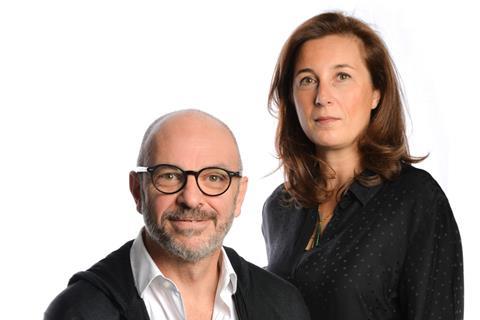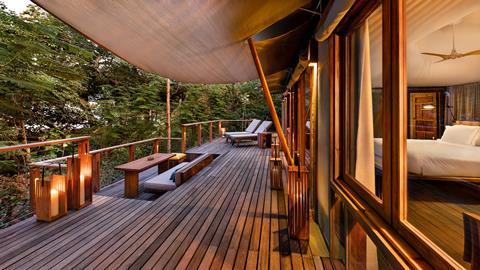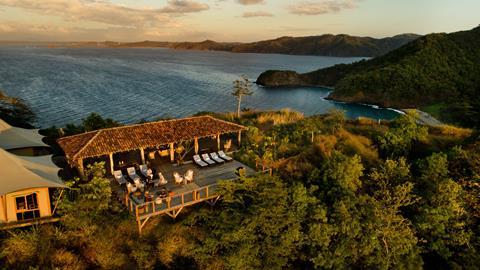Eventually tourism will bounce back, and when it does we have a duty to make sure it is sustainable
For reasons which will be obvious to all, 2020 saw a sharp decline across the worldwide tourism industry. Travel restrictions designed to curb the spread of the coronavirus effectively stopped the movement of international visitors overnight, and it will come as little surprise to see figures from the United Nations World Tourism Organisation (UNWTO) show global tourist numbers fell 65% in the first half of last year.

It’s a depressing statistic. But devastating as it has been, the pandemic is still a temporary problem for the hotel sector, one that will hopefully be solved by the global rollout of vaccines.
Because while recent discussions in the hotel architecture and construction worlds have revolved around how to respond to the pandemic, a more pressing issue is how these industries will design and build accommodation to cater for the expected rise in traveller numbers once the virus is under control, while at the same time managing the sector’s impact on the planet.
Travel is currently available to around 10% of the world’s population, but as countries recover from the pandemic and income levels improve this figure is expected to increase, with the rise of a new middle class likely to be an additional factor in its growth.
The sector’s economic potential is also significant. Tourism accounts for more than 10% of the world’s trade – nearly $9trn (£6.9trn) – and globally employs one in 10 people. According to the World Travel & Tourism Council the travel and tourism sectors grew by 3.5% in 2019, beating the global economy’s overall growth statistic of 2.5% for the ninth year running.
Acknowledging local people’s heritage and interests is key to developing responsible tourism
While 2020 will obviously show a sharp decrease, the upward trend will continue, driven in part by the development of new tourist hotspots. These will be seen as a boon to local economies who have every right to benefit from them, but the industry and those who serve it also have a responsibility to ensure that such growth is managed responsibly.
We at AW2 believe the solution lies in designing a diverse range of options which emphasise eco hotels and developing accommodation which features a ‘light touch’ on its surroundings. We created Kasiiya Papagayo, a boutique eco-lodge in Costa Rica (pictured), to go further than having a minimal impact on the environment, but no impact at all. Zero.

With not a piece of concrete involed, Kasiiya Papagayo’s timber foundations can be dismantled and moved, leaving no trace across the 2,000m² development set in 123 acres. With no clear boundaries between inside areas and the outside world, connection with nature was an important factor in the design, as was fulfilling the need for guests to feel secure in the accommodation.
Building the lodge using mainly locally-sourced materials was crucial, tying in neatly with one of the UNWTO’s goals around responsible consumption and production.
The UNWTO further argues that tourism can contribute to both urban renewal and rural development, reducing regional imbalances by giving communities in which hotels and other schemes operate the chance to thrive. Kasiiya Papagayo does just this.
Acknowledging local people’s heritage and interests is key to developing responsible tourism. According to the 2002 Cape Town Declaration on responsible toursim, now widely adopted by the global travel market, this can help visitors connect more meaningfully with local people, creating a greater understanding of local cultural, social and environmental issues.

Meanwhile the need to cater for visitors with different needs, such as disabilities, will only grow. Designing with inclusivity in mind will be key going forward and will help towards creating better tourist outcomes.
It also worth noting that the way tourism is conducted is undergoing a sea-change. For many, the two-week fixed location holiday is becoming a thing of the past; travellers are becoming more sophisticated, often adding a few days’ vacation to a business trip. This has the potential to re-invigorate urban environments, leading to investment in better infrastructure, improved air quality and conservation of those sites and spaces that attract visitor and local alike.
There has not been a year like 2020 for the modern hotel industry. As we pull away from the pandemic the challenge for architects will be to consistently apply our design skills to bring about environmentally responsible, sustainable schemes. We should not miss this opportunity.
Stéphanie Ledoux and Reda Amalou are partners of Architecture Workshop


























1 Readers' comment